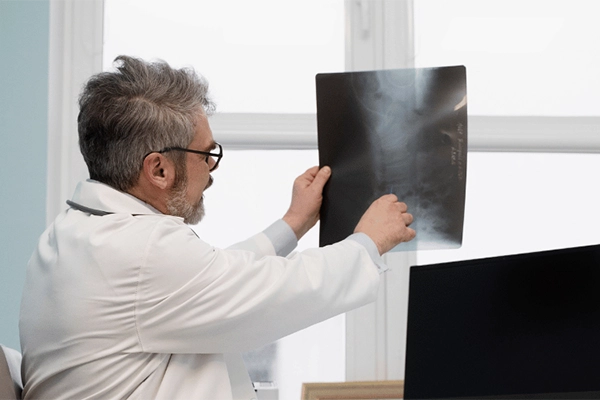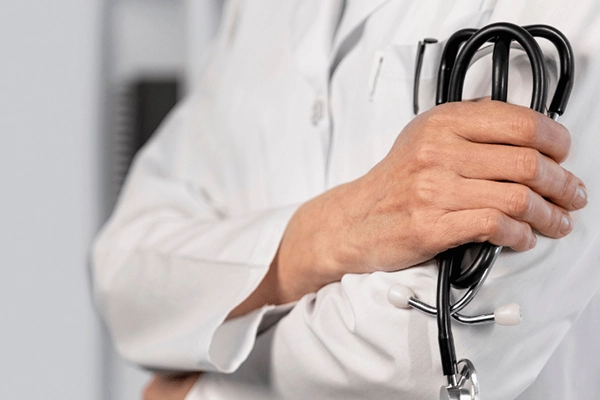Topics
Why is liver health important?
The liver is an important organ responsible for crucial bodily functions:
- Detoxification: Filters toxins and waste products from the blood.
- Metabolism: Processes nutrients, drugs, and hormones, and converts food into energy.
- Bile production: Produces bile to aid in digestion and absorption of fats.
- Storage: Stores vitamins, minerals, and glycogen (a form of sugar for energy).
- Protein synthesis: Produces essential proteins like albumin and blood clotting factors.
When the liver is compromised, it can lead to serious conditions like fatty liver disease, cirrhosis, or liver cancer.
What are the signs of a healthy liver?
Recognising the signs of a healthy liver is essential for early detection of any issues. A healthy liver typically manifests as:
- Clear skin and eyes: A well-functioning liver filters toxins, promoting a clear complexion and bright eyes.
- Normal bowel movements: Regular, healthy stools are indicative of proper digestion and bile production.
- Adequate energy levels: A healthy liver helps metabolise nutrients, providing consistent energy throughout the day.
- Optimal cholesterol and blood sugar levels: A well-regulated liver contributes to balanced cholesterol and blood sugar.
- Normal digestion: No signs of indigestion, bloating, or intolerance to fatty foods, as the liver produces bile for digestion.
What are the first signs of a bad liver?
Many types of liver disease, including conditions like fatty liver disease and hepatitis, often progress silently without causing noticeable symptoms in the early stages. By the time symptoms manifest, significant liver damage may have occurred, and the liver may already be scarred or inflamed.
Liver dysfunction may manifest in various ways, including:
- Fatigue: Feeling tired or weak, even with adequate rest and sleep.
- Digestive issues: Indigestion, bloating, nausea, or intolerance to fatty foods.
- Abdominal discomfort: Pain, swelling, or discomfort in the upper right abdomen, where the liver is located.
- Changes in stool colour: Light-coloured stools or dark urine, indicating problems with bile production.
- Jaundice: Yellowing of the skin or eyes due to elevated levels of bilirubin in the blood.
- Itching: Persistent itching, especially on the hands and feet, due to bile buildup.
- Loss of appetite: Reduced appetite or unexplained weight loss.
- Swelling: Swelling in the abdomen or legs due to fluid buildup (ascites).
- Bruising easily: Increased bruising or bleeding, as the liver fails to produce clotting factors.
What are the types of liver diseases?
Several liver diseases can affect an individual, including:
Hepatitis- Viral hepatitis: Hepatitis A, B, C, D, and E viruses can cause liver inflammation.
- Autoimmune hepatitis: The body’s immune system attacks liver cells, leading to inflammation.
- Alcoholic hepatitis: Excessive alcohol consumption damages liver cells, causing inflammation.
- Metabolic Dysfunction-Associated Fatty Liver Disease (MAFLD): Accumulation of excess fat in the liver unrelated to alcohol consumption.
- Alcoholic Fatty Liver Disease (AFLD): Fatty liver due to excessive alcohol consumption.
- Chronic liver damage leads to scarring (fibrosis) and hardening of the liver tissue, affecting liver function.
- Primary liver cancer (hepatocellular carcinoma) originates in the liver.
- Secondary liver cancer (metastatic liver cancer) spreads to the liver from other parts of the body.
- Acute liver failure: Sudden and severe loss of liver function, often due to drug toxicity or viral hepatitis.
- Chronic liver failure: Gradual loss of liver function over time, typically due to cirrhosis or long-term liver damage.
- Hemochromatosis: Excessive iron accumulation in the liver.
- Wilson’s Disease: Buildup of copper in the liver.
- Alpha-1 Antitrypsin Deficiency: Genetic disorder affecting liver and lung function.
- Cholecystitis: Inflammation of the gallbladder.
- Cholelithiasis: Formation of gallstones.
- Primary biliary cirrhosis: Autoimmune disease affecting the bile ducts.
- Benign tumours or cysts that can develop in the liver.
How to check liver health?
Checking liver health involves various diagnostic tests to assess its function and detect potential issues.
- Liver function tests (LFTs): Alanine aminotransferase (ALT), aspartate aminotransferase (AST), alkaline phosphatase (ALP), bilirubin, and albumin tests to measure enzyme levels, bilirubin, and protein levels.
- Imaging tests: Ultrasounds, CT scans, and MRIs can reveal liver abnormalities.
- Liver biopsy: Sampling tissue to diagnose specific conditions.
Routine medical check-ups and discussing symptoms with a doctor can help determine the most appropriate tests for evaluating liver health.
How to improve liver function naturally?
Maintain a healthy weight
When you are overweight, your liver accumulates excess fat, triggering inflammation and liver damage. Reducing weight through a balanced diet and regular exercise reduces the strain on your liver, lowers the risk of metabolic dysfunction-associated fatty liver disease (MAFLD) progression to more severe conditions like cirrhosis, and helps the liver function optimally.
Stay active
Physical activity aids in weight management by burning excess calories and reducing fat accumulation in the liver. Studies show that regular exercise promotes better blood circulation and oxygen delivery to the liver, facilitating detoxification processes.
Eat a balanced diet
Limit processed foods, sugary snacks, beverages, saturated and trans fats. Eat nutrient-rich foods like fruits, vegetables, whole grains, and lean proteins for essential vitamins and antioxidants that support liver function and repair.
Limit alcohol intake
Excessive alcohol consumption over time can cause inflammation, fatty liver, and ultimately cirrhosis (scarring of liver tissues due to long term damage). By reducing alcohol consumption, the liver can regenerate healthy tissue and recover from damage. This promotes improved liver function, ensuring it can effectively perform detoxification and metabolism.
Practise good hygiene and safe sex
Practising good hygiene and safe sex improves liver function by reducing the risk of viral hepatitis transmission, particularly hepatitis B and C.
Avoid taking medications without consultation
Self-medicating or using medications without professional guidance can lead to liver damage, drug-induced hepatitis, or toxic reactions. Healthcare providers assess drugs’ potential risks and benefits, considering liver function and possible interactions.
Make an appointment at Pantai Hospitals
At Pantai Hospitals, we offer a wide range of health screening programs catered to each individual, depending on their health status and needs. The team of healthcare professionals are here to assist and recommend or tailor a screening package to suit your age, gender, family, and medical history.
For appointments, please contact the Health Screening Centre at your nearest Pantai Hospital.
Pantai Hospitals have been accredited by the Malaysian Society for Quality in Health (MSQH) for its commitment to patient safety and service quality.












